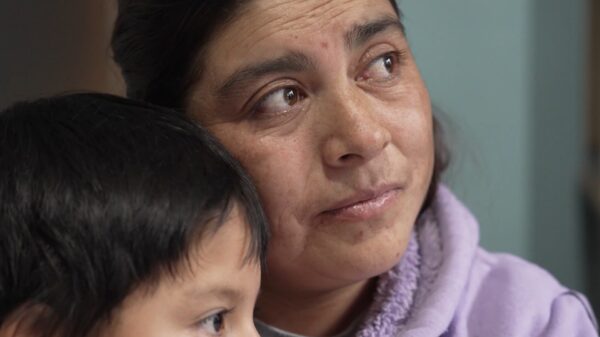UPDATE: Health officials are urging Americans to get their flu shots NOW as the flu season approaches. With reports confirming a potential surge in influenza cases, it’s crucial to protect yourself and your loved ones before symptoms begin to spread widely.
A tragic story has emerged involving a father, Jeb Teichman, who lost his son, Brent Teichman, to the flu. After suffering for five days, Brent’s condition worsened, ultimately leading to a fatal incident despite medical intervention. Jeb, now a board member of Families Fighting Flu, emphasizes the importance of timely vaccinations as misinformation spreads on social media.
According to Alexandria Boehm, program director of WastewaterSCAN, current wastewater samples indicate that the flu season in the U.S. has not yet peaked. However, once it begins, it will spread rapidly across states. “Once it starts in one state, it starts everywhere at the same time,” Boehm warns.
The Centers for Disease Control and Prevention (CDC) reports that last year’s flu season resulted in 9.8 million illnesses, 610,000 hospitalizations, and 27,000 deaths. Alarmingly, only 32% of hospitalized patients had received a flu vaccine. Vaccination can reduce the risk of severe flu symptoms, making it imperative to get vaccinated early.
Health experts, including those from the American Academy of Pediatrics, recommend children receive their flu shots as soon as they become available, ideally by late October. For infants and children aged 6 months to 8 years who are receiving their first vaccine, two doses are necessary for full protection.
Adults should also be aware that immunity from flu vaccines can diminish over time. Dr. Amesh Adalja from the Johns Hopkins Center for Health Security advises getting vaccinated by late October to maximize protection as flu season arrives.
The safety of flu vaccines has been confirmed through rigorous testing. Dr. Robert Kim-Farley emphasizes that “these are extremely safe vaccines,” and the most common side effect is merely a sore arm. Concerns about serious side effects, such as Guillain-Barre syndrome, are largely unfounded, as the risk from flu itself is significantly higher.
It’s critical to note that flu vaccination not only protects individuals but also contributes to community health. Vaccines can reduce transmission rates, providing indirect protection to close contacts.
As we approach flu season, many Americans remain hesitant about vaccinations. Recent data shows a decline in flu shot uptake, with only 54% of adults and 49% of children planning to get vaccinated this year. This drop in vaccination rates could have dire consequences, given the severity of last year’s flu season.
The CDC highlights the importance of flu vaccines, which prevented significant morbidity and mortality last year. With the flu capable of causing severe illness—even among young, healthy individuals—getting vaccinated is more crucial than ever.
In conclusion, the time to act is NOW. Get your flu shot to safeguard your health and that of your community. As flu season approaches, remember the impact of vaccination and share this urgent message with family and friends. Don’t wait until it’s too late—protect yourself and those you love from the flu this season.







































































